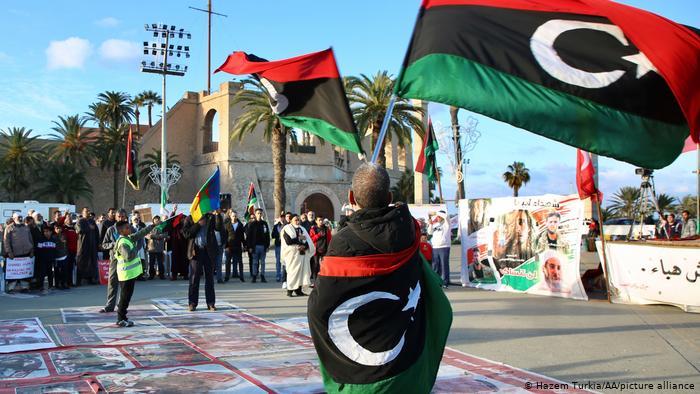I fondly and vividly recall one of the finest and first ever elections held in the newly liberated Libya in 2012 when the man on the street just looked enthusiastically at their future that might have fulfilled their revolutionary dream. The elections despite an absence of a security outfit and roving militias were carried by the hope of the Libyans. Even though the seeds of its failure were sown in the election law itself and the fear of the Islamists getting the bigger cake, as had just happened in neighbouring Egypt where Muslim Brotherhood had taken control of the reins of power. Fear in Libya among the liberals and western command including the United Nations Support Mission in Libya (UNSMIL) of this possibility led to nascent parliamentary system’s eventual demise even before it was born. The country was divided between the so called liberals and their masters and the Islamists and their masters. The die was cast and was further cemented post 2014 elections and advent of General Haftar when the dividing lines between the East and West of Libya were drawn for good leading to two legislatures, three Prime Ministers and institutions as the race for oil wealth began. And militias of hue and colours funded and supported by external powers called the shots. Libyan dream once again turned into despair.
After almost a decade and near invasion of Haftar led forces on to Tripoli made the international community sit up yet again and the Berlin and Geneva processes happened to patch up the differences between Tripoli and Tobruk/Benghazi. Consequently a Government of National Unity under Abdelhamid Dabeibah was formed which has been charged with managing the transitional phase and enabling conditions to hold the elections on December 24 this year. But the trust deficit being so deep it remains a touch and go situation as the divergent and dissenting views and voices from the key aspirants to power add fuel to the fury of the hapless Libyans facing immense security and economic and pandemic challenges.
One of the key challenges has been and will be the removal of all foreign militias acting out the geopolitical ends of their principals, so called military advisers and forces and above all disarming or integrating the powerful local militias into national security outfits. Although Foreign Minister Najla Mangoush mentioned that some foreign forces have left the country much more remains as competing powers are yet to fill the trust gaps. The real players remain France, Russia, Egypt, UAE and Saudi Arabia siding with Haftar outfits and liberal factions as against the Islamists controlled western Libya supported by Turkey, Italy and Qatar. UK and US have been vacillating from one end to the other after their planless adventurism in 2011. Fortunately, a ceasefire was reached and truce on all sides has held out with greater involvement of external actors helping the warring sides. Of course, no one is there for altruistic reasons. Apart from geo-political influence, they are all fishing for Libyan riches and post conflict reconstruction phase which is pretty much evident in the spate of business delegations from major countries.
Enthusiasm of ordinary Libyans to craft their destiny is evident. More than 2.8 million people out of over 6mn have registered to vote. The well experienced Head of the High National Electoral Commission, Imed Al Sayeh – also holds India in high regard as the largest democracy, claimed that they are 80-90% ready for the Presidential and parliamentary elections to be held in December and January next year. Of course, the controversies and contestations over the recently passed electoral laws will continue but that is in the nature of democracy as long as the peaceful debate is the way forward and adopted. This will also be the first time that a direct presidential election will be held after 1951.
Power hunger is a human trait and no one wants to give it up. As the law forbids the current occupants of office or authority to contest General Khalifa Haftar had stepped down from his powerful position and is aiming to crack the highest office taking a leaf out of his mentor General Sisi of Egypt. Curiously, reports are emerging that Gaddafi’s son Saif ul Islam, recently released from jail, might be gaining traction to take an aim at the high office. Both are controversial but their survival also depends on the political and election outcomes, if they indeed contest and let the power transition happen smoothly, if they are not preferred by the electorate. As for Sayeh, every Libyan has the right to vote and contest as long as he is eligible and has an identity card.
Somehow India, despite its critical role at the UNSC exactly again after a decade and chairing the sanctions committee this time, is still mulling over its options as the clamour for lifting the travel ban intensifies which could be considered in a phased manner. Businesses are expressing interest on both sides. Several major Indian infrastructure projects especially power and steel as well as the health care sectors require urgent technical and other assistance which Libya needed as of yesterday. Indian doctors and medical staff are held in high esteem across Libya. Time is ripe to engage and assess the mutually beneficial business and investment opportunities as the country does look to India as a reliable partner. Of course, at the UNSC meeting on Libya, Foreign Secretary Harsh Shringla (July 15) expressed the Indian and international view point and concerns quite succinctly. He also said “India has traditionally enjoyed close and mutually beneficial bilateral ties with Libya. The contributions made by Indian enterprises and professionals in critical sectors like energy, manufacturing, education and health care continue to support the Libyan economy and society to this day. India remains committed to supporting Libya and the Libyan people in their endeavour to bring about lasting peace in the country. To this end, we look forward to working with the Government of National Unity for providing capacity building and training assistance in mutually identified areas”.
It will also be a good time for India to help them in election related matters and supplies of ink etc. If the request comes for sending a team or observers, we should consider it positively. It would be worthwhile to appoint a full time Ambassador so that diplomatic engagement could be carried out in full steam. When I was there post Gaddafi, ground situation was far worse than now and even that in Afghanistan but presence of an Ambassador makes a difference. Security risks cannot dictate and be allowed to stunt the diplomatic outreach.
Like India, the African Union has asked for the withdrawal of all foreign forces and mercenaries immediately. Arab Parliament while supporting the electoral process warned that failure to hold the Libyan elections may open the door for a new phase of unrest and violence. Hopefully, Libyans will find a way out of the current despair and elections will be held and smooth political transition will be facilitated by all concerned. At least that much the international community owes to the country whose ‘New Libya’ dream was shattered by their own designs or lack of it. Give them a breather.
(The paper is the author’s individual scholastic articulation. The author certifies that the article/paper is original in content, unpublished and it has not been submitted for publication/web upload elsewhere, and that the facts and figures quoted are duly referenced, as needed, and are believed to be correct). (The paper does not necessarily represent the organisational stance... More >>
Image Source: https://www.dw.com/en/libya-will-elections-finally-bring-healing/a-59301246










Post new comment